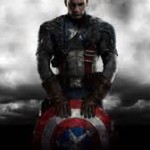Now that Captain America: The Winter Solider has been out for a while, it is time again to look at how the movie represents the characters and storylines as they relate to their comic book counterparts.
As with the other times I have done this, there will be spoilers for both Captain America: The Winter Solider and the current storylines in Agents of S.H.I.E.L.D., so consider yourself warned.
As the title suggests, the film is a loose adaptation of Ed Burbaker’s Winter Soldier storyline from his run on Captain America. I say loose because while elements of Brubaker’s story are used, the movie is more centered on a new plot that ties into the history of the Marvel Cinematic Universe (MCU). One of the major strengths of the MCU movies is that, even though they are all superhero movies, each one stakes out its own genre to keep them from feeling repetitive.
Captain America: The Winter Solider is, at its heart, a political thriller/spy film. The story is a throwback to the S.H.I.E.L.D. stories that Jim Steranko created back in the 60s and 70s. In other words, this is a S.H.I.E.L.D. story that happens to feature Captain America, Black Widow, and the Falcon.
It also works as the best example yet that the Marvel Cinematic Universe is a cohesive whole and that what happens in one part has implications in another. Marvel’s Agents of S.H.I.E.L.D. (the TV arm of the MCU) has been directly affected by the events of the film, just like related comic titles would be affected by a major change in another title’s storyline. This was an unprecedented event and marked a major uptick in the investment viewers had inAoS. I’ll get into this more when I do the Agents of S.H.I.E.L.D. season review, after the season finale.
Back to Captain America: The Winter Solider. There were so many continuity nods that it was almost too much to keep track of. The shout out that got fans the most excited was the mention of Stephen Strange, making fans giddy with anticipation of the Dr. Strange film.
As for the characters, we have Captain America himself, of course. Chris Evans has truly embodied this character, staying true to his comic book incarnation. A patriotic idealist who has a firm moral compass, and will strive to do what is right at all times, for no other reason than that it is right. In a time when even film portrayals of Superman have moral ambiguity, Captain America is still the beacon of light without becoming a victim of farce.
Black Widow brings a different take; prior to the MCU, Black Widow was really a second string Avenger. She was the former villain turned hero and the spy girl. Her appearances across the MCU, and how Scarlett Johansson has played her, have led to her becoming a much more major character in the comics, but she was never as close to Captain America as the movies have portrayed her. Her presence makes sense in this story, both as a continuation of the MCU storyline in the Avengers and that Black Widow did have a history with the Winter Soldier in the comics, but it was actually more direct there, than in the film.
The Falcon is a case of Marvel Studios again finding the perfect balance between how the character was portrayed in the comics and how he needs to fit into the MCU narrative. In the comics, Sam Wilson was Captain America’s partner through the majority of the 70s (so much so that the comics were titled Captain America and the Falcon). His personality in the film is very aligned with how he is in the main Marvel Universe, while adding in the military background from the Ultimate Universe. Anthony Mackie gives a great performance, and I feel I could happily watch a movie devoted to the Falcon. In particular, I want to point out that the first time Falcon is revealed with his flight harness the word that sprang to my mind was “majestic.”
The Winter Soldier himself was a good take. Through most of the movie he was less character, and more plot device; he would show up and things would go to hell for the heroes. This is consistent with how the Winter Soldier was played early in the story. That even with those limitations Sebastian Stan is able to garner sympathy for this character is a testament to his skill as an actor.
Arnim Zola is a real stand out in this film. In the comics, Zola constructs a special cloned body for himself that has no head, with his face being a holographic projection on his chest. This would have looked ridiculous on-screen, so the movie wisely went the less taxing route of having his mind uploaded to a computer and his face appearing on the monitor.
Alexander Pierce is the one major departure in the film from his comic book counterpart. In the comics, he is an agent of S.H.I.E.L.D. serving directly under Nick Fury. His reveal as the main villain of the film is a major departure for this character; however, the way he is played in the film is consistent with how the Red Skull acted while he was manipulating different events in the comics. This led fans to speculate that Pierce was the Skull in disguise. The big take away I had with him from this film is that Robert Redford is being criminally underused in current cinema.
I give Captain America: The Winter Solider a grade of A. It is a superior effort that is enjoyable by both fans and non-fans alike.

